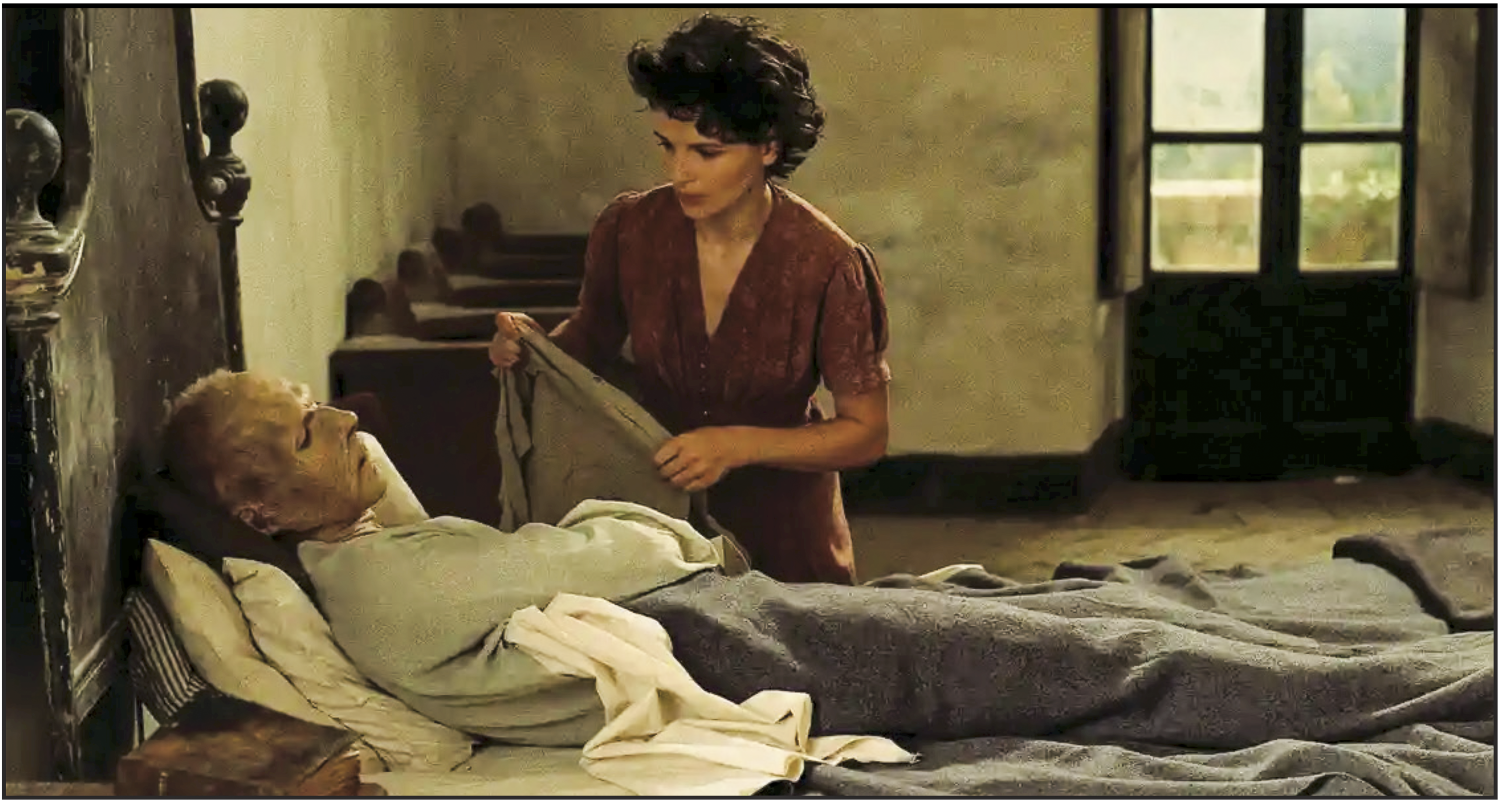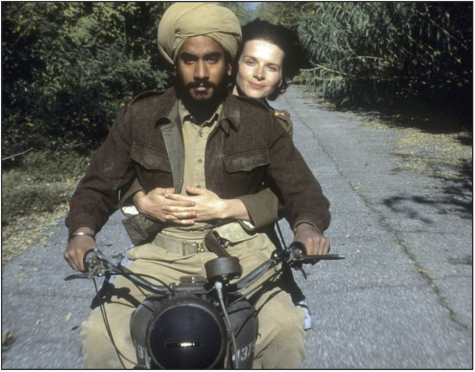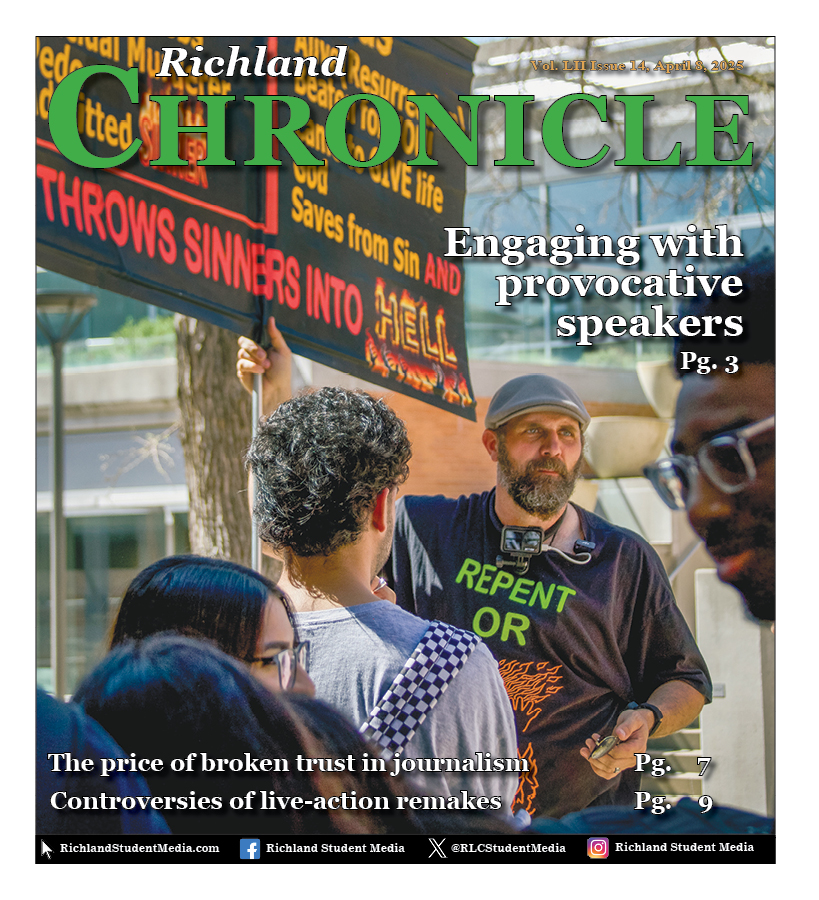‘The English Patient’:
Another eternally grateful great movie
February 21, 2023

The film “The English Patient”(1996), is based on the novel of the same title by Michael Ondaatje, who was co-winner of the 1992 Booker Prize, a literary prize awarded each year for the best novel written in English and published in the United Kingdom or Ireland. It also won the Golden Man Booker Prize in 2023, a special award established to commemorate the 50th anniversary of the prestigious British literary prize. The late Anthony Minghella wrote the screenplay and directed the film, which was produced by Saul Zaentz.
The movie reminds us that the causalities and fatalities of war, whether they be acquaintances, friends, family members, lovers or enemies, each have their interconnecting ephemeral stories soon forgotten. Both the book and movie are highly recommended. I prefer the book but hope a much longer made-for-television movie will be made to more fully develop the central characters of the book. Apparently, the BBC is in the early phases of doing exactly that with a television adaptation of the novel.
A British group of explorers are attempting to map the North Africa desert in the years just before World War II (Cairo 1930-1938). The English patient is Hungarian Count László Almásy (Ralph Fiennes), a member and one of the pilots of the group, whose lover is Katharine Katherine Clifton (Kristin Scott Thomas), whose husband Geoffrey Clifton (Colin Firth), a British explorer, pilot and aerial photographer working for British intelligence. Clifton attempts to kill the count when he learns of his wife’s love affair, by crashing his plane into Almásy. Clifton succeeds in killing himself and seriously injuring his wife, but just misses killing his target, Count Almásy.
The consequences of the attempted murder and suicide lead to the count’s biplane being shot down over the Sahara Desert in Northern Africa by the German Army toward the closing months of World War II. The count’s life is first saved by Arab Bedouins and the count eventually ends up in Northern Italy in the medical care of a Canadian Army nurse Hana (Juliette Binoche). The count claims he has little memory of his past but does have his copy of Herodotus’ “History,” which includes his annotations over many years that triggers his memories of his deceased lover, Katharine.

A former thief, David Caravaggio (Willem Dafoe), a Canadian immigrant, (who is working for British Intelligence), was captured, interrogated and tortured by German Army Major Mueller (Jürgen Prochnow). Mueller informs Caravaggio that “You are a Canadian spy working for the Allies. Code-name Moose.” “Look here, for every name you give me, I’ll let you keep a finger. You give me something, and you’ll keep something.”
Caravaggio keeps his fingers but loses his thumbs and becomes addicted to morphine to deal with the constants pain. Caravaggio shows up at the villa where the English patient and nurse are staying. He is seeking revenge against those who informed on him and believes the count was the one who gave the German Army his name as a British spy.
“The English Patient” was nominated for 12 Academy Awards and won nine in 1997, including Best Picture ( Zaentz), Best Director (Minghella), Best Cinematography (John Seale), Best Actress in a Supporting Role ( Binoche), Best Film Editing ( Walter Murch), Best Sound ( Murch, Mark Berger, David Parker, Christopher Newman), Best Film Editing ( Murch), Best Music, Original Dramatic Score (Gabriel Yared), Best Art Direction – Set Decoration), and Best Custom Design (Ann Roth). The movie also won Golden Globe Awards for Best Motion Picture – Drama and Best Original Score – Motion Picture ( Yared), and Golden Reel Award-Motion Picture Feature Film Music Editing (Robert Randies).
After viewing the movie on DVD, I would recommend going to the special features section and listen to the commentary of the director and screenwriter, the late Minghella on the making of the movie and listen to Ondaatje, the author of “The English Patient” and how he went about researching and writing the book and others commenting upon his novels and poetry.
Grade: A



